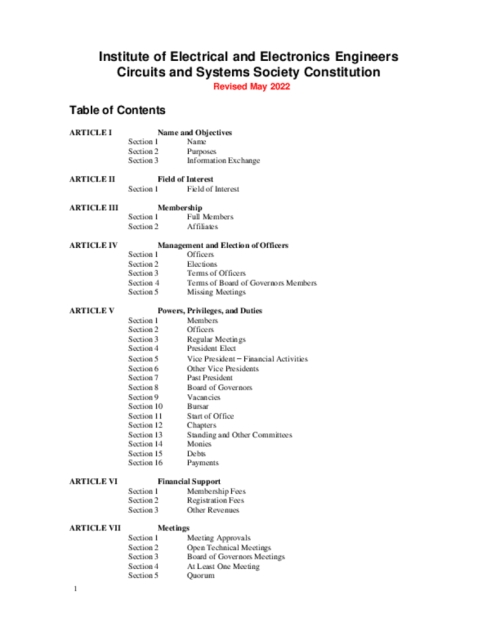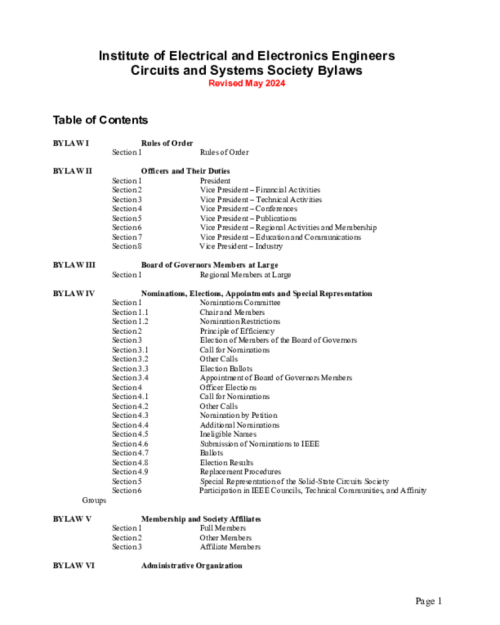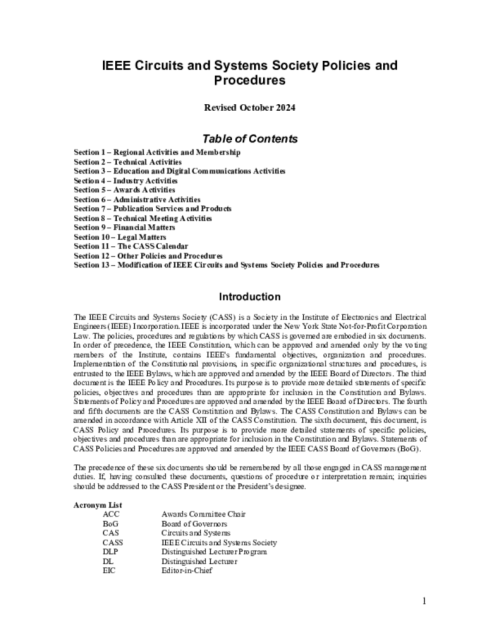Constitution
IEEE CASS Constitution - May 2022 (PDF, 234.4 KB)
Date:
May 2022
Bylaws
CASS Bylaws - May 2024 (PDF, 322.0 KB)
Date:
May 2024
Policies and Procedures
CASS Policies and Procedures - October 2024 (PDF, 422.0 KB)
Date:
October 2024



